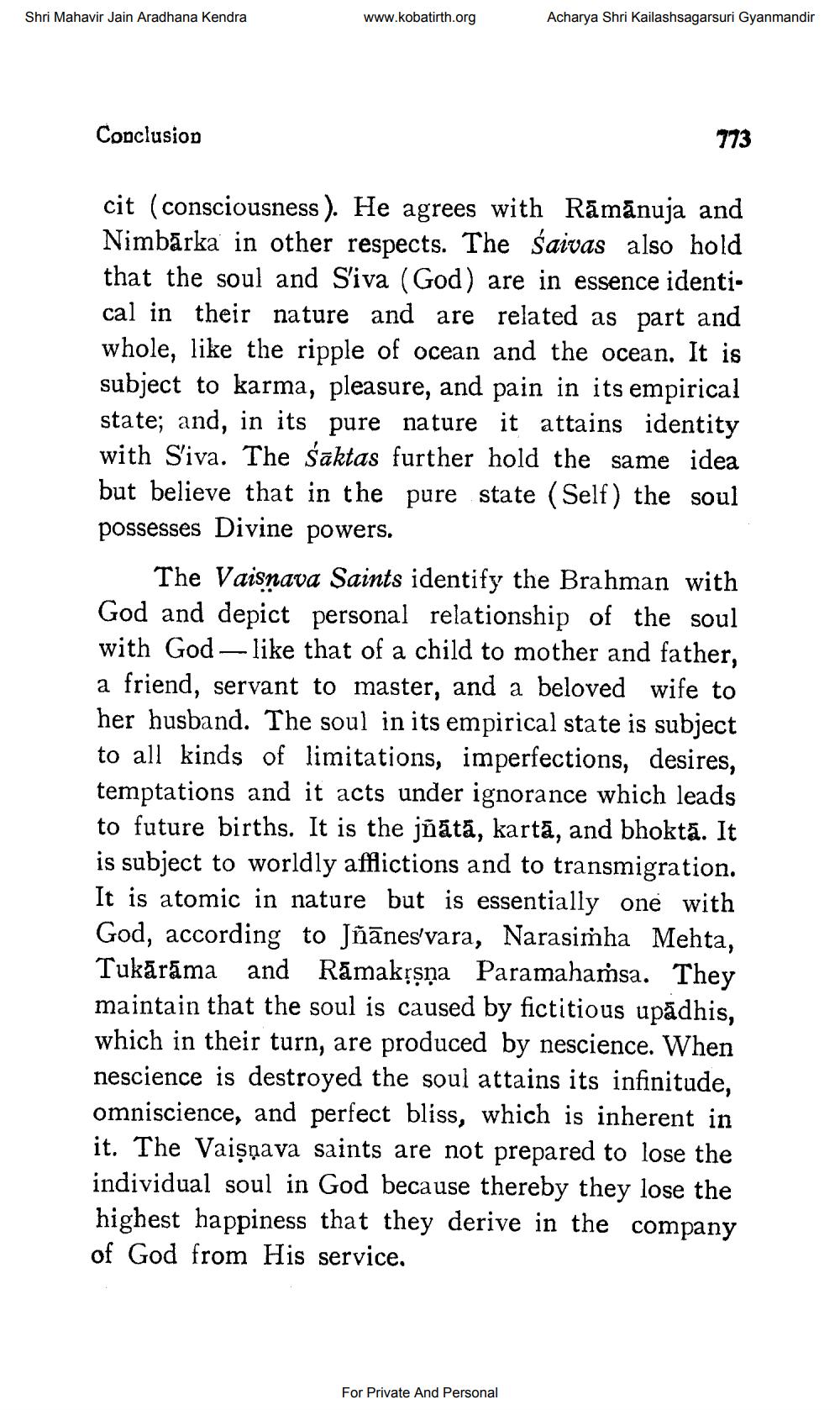________________
Shri Mahavir Jain Aradhana Kendra
www.kobatirth.org
Acharya Shri Kailashsagarsuri Gyanmandir
Conclusion
773
cit (consciousness). He agrees with Rāmānuja and Nimbārka in other respects. The śaivas also hold that the soul and Siva (God) are in essence identical in their nature and are related as part and whole, like the ripple of ocean and the ocean. It is subject to karma, pleasure, and pain in its empirical state; and, in its pure nature it attains identity with Siva. The sāktas further hold the same idea but believe that in the pure state (Self) the soul possesses Divine powers.
The Vaisnava Saints identify the Brahman with God and depict personal relationship of the soul with God — like that of a child to mother and father, a friend, servant to master, and a beloved wife to her husband. The soul in its empirical state is subject to all kinds of limitations, imperfections, desires, temptations and it acts under ignorance which leads to future births. It is the jñātā, kartā, and bhoktā. It is subject to worldly afflictions and to transmigration. It is atomic in nature but is essentially one with God, according to jñānesvara, Narasimha Mehta,
Tukārāma and Rāmakşşņa Paramahamsa. They maintain that the soul is caused by fictitious upādhis, which in their turn, are produced by nescience. When nescience is destroyed the soul attains its infinitude, omniscience, and perfect bliss, which is inherent in it. The Vaişņava saints are not prepared to lose the individual soul in God because thereby they lose the highest happiness that they derive in the company of God from His service,
For Private And Personal




